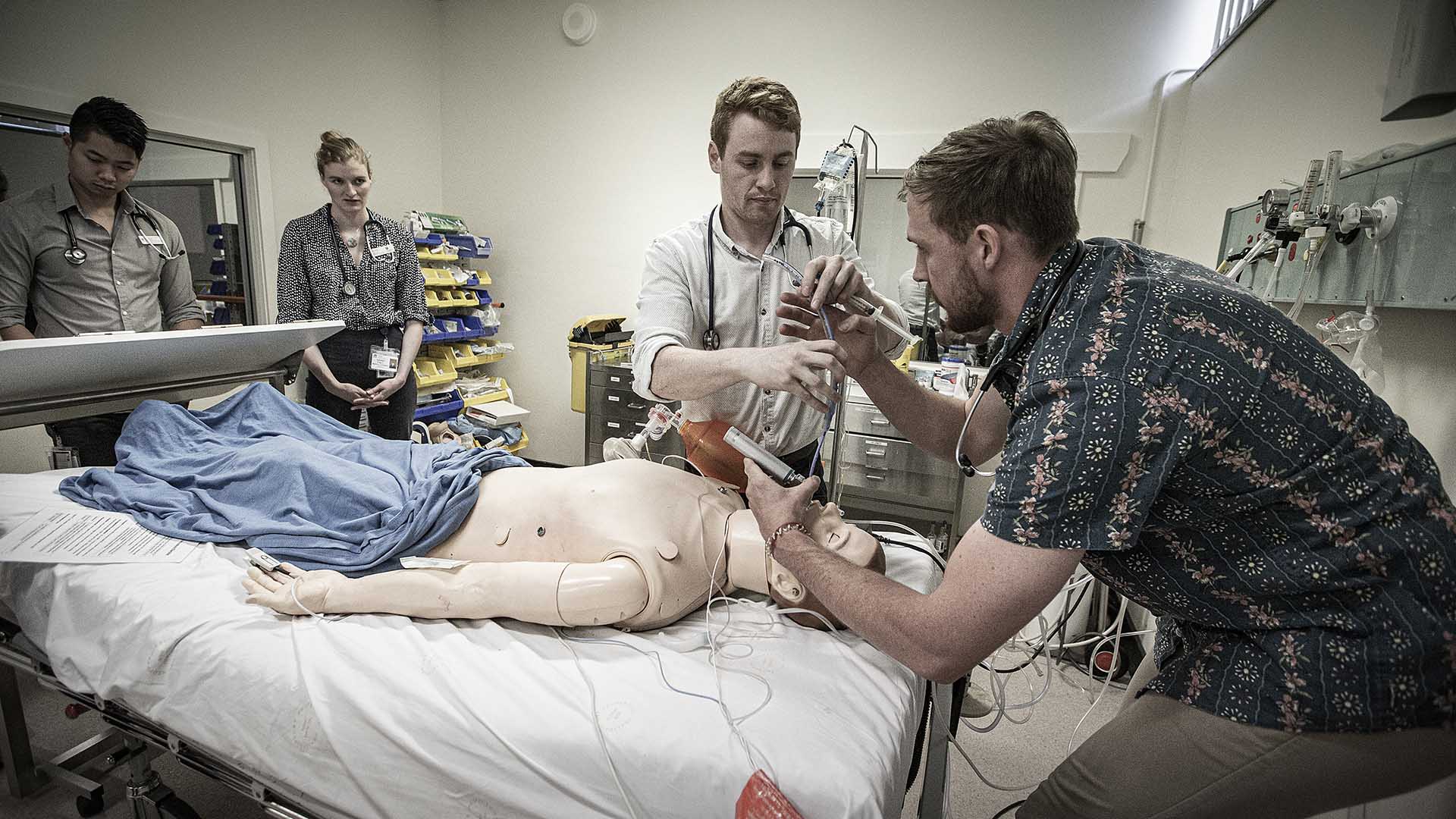February 6, 2023
Graduate medicine program addresses rural doctor shortage
Unique teaching program attracts medical practitioners to rural, regional and remote Australia
With the National Cabinet meeting last week to address problems in Australia’s primary health care networks, including the shortage of general practitioners outside of metropolitan centres, the University of Wollongong’s (UOW) Graduate School of Medicine provides a successful template for attracting doctors to regional, rural and remote locations.
Of the doctors who graduated from the UOW program in 2022, 28 per cent started their internships in 2023 in a rural or regional area.
UOW Dean of Graduate Medicine Professor Zsuzsoka Kecskes said the University’s program was focused on creating the next generation of rural and regional medical specialists and general practitioners.
“What sets UOW Graduate Medicine apart from other medical programs is the commitment to regional, remote and rural medicine. It is the only medical school in the country in which up to 70 per cent of students spend a full year of clinical training in a rural community,” Professor Kecskes said.
“This experience helps graduates prepare for the many challenges they will face on a daily basis if they choose to practice in these areas, but also shines a light on the benefits of living and working outside the city.”
“We are dedicated to improving the health and wellbeing of people living in rural settings, and we continue to build our rural and remote outreach to improve the quality of care given to patients in country hospitals and rural practices.”
About one-third of Australia’s population lives in a rural or remote area, which creates challenges in terms of equity of access to health care.
In addition, rural and remote populations face unique health and social issues such as Indigenous health needs and inequities, farm safety, social isolation and natural disasters. These issues are compounded by higher rates of chronic disease, substance abuse and suicide in these settings.
With an ageing and growing population, demand for GP services in Australia is projected to increase by 38 per cent by 2032, according to the ‘General Practitioner workforce report 2022’. At the same time, the number of GPs is projected to decrease by 4 per cent resulting in a shortfall of 11,000 GPs by 2032.
The Medical Deans of Australia and New Zealand Medical Schools Outcomes Database shows that less than 20 per cent of all graduates want to work in regional areas, smaller towns or communities. By comparison, more than 70 per cent of all UOW doctors would prefer a career working outside a capital city.
While only 18 per cent of all Australian graduates want to become GPs or rural specialists, 30 per cent of UOW graduates want to do so. And of those UOW graduates that are now specialists, 71 per cent are GPs and 78 per cent of those work regionally or rurally.
The UOW Graduate School of Medicine enrolled its first medical students in 2007. Since 2010, UOW has graduated 926 doctors. Since 2017, more than 60 per cent are from a rural background.
“The ‘UOW doctor’ is person-centred, an excellent communicator and team member and able to work in any geographic setting, with a focus on regional, rural and remote locations,” Professor Kecskes said.
Today, there are UOW Graduate School of Medicine alumni practising in every Australian state and territory, from Kalgoorlie to Alice Springs to Cooktown, from Warrnambool to Yackandandah to Launceston, from Broken Hill to Grafton to Wagga Wagga.
Caption: A team of UOW Graduate Medicine students on placement at Grafton Base Hospital on the NSW north coast in 2019.The students spent 12 months in the Clarence Valley, learning and training in partnership with health professionals in the region.
